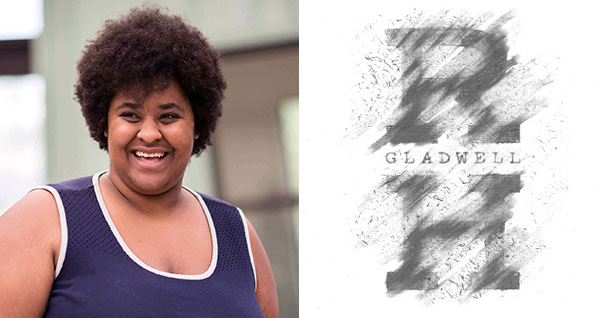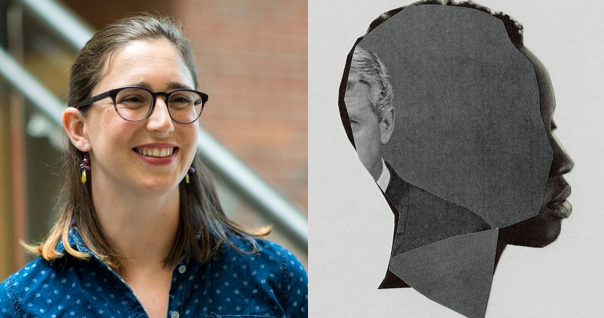At WA Women’s Foundation, we are dedicated to becoming more a informed collective and approaching our work with a learning mindset. We do this through our over 40+ programs and events we host throughout the year, our grantmaking cycles, and our various member-driven committees. While we’re proud of the breadth of our educational opportunities, we also value the time and space for personal reflection on our learning.
As we continue along our equity journey as a Foundation, the staff also is deepening our understanding of equity and applying it to our day-to-day work. From reviewing personnel policies to seeking consultants and vendors that are aligned with our values to building relationships across our community, we are focused on advancing equity in everything we do. Doing this work in this way requires us to further our own understanding of power and privilege, and we are committed to this learning.
In the spirit of collective learning and personal reflection, we have shared a few words below about what we’re reading and listening to, and how we can apply the lessons we learned from theses books, articles, and podcasts to our commitment of increasing equity and reducing disparities in Washington State.

Morgan Dawson, Special Events & Programs Manager
“Miss Buchanan’s Period of Adjustment,” Revisionist History
I’ve spent a lot of time thinking about duality. How I can be a writer who hates writing things down? How you can be bored and exhausted? How you can want so badly to help and cause so much harm? (Well, that one is easy: it’s intent vs impact) I’ve been thinking about duality and multitudes for a while now. In improv, they say, “Yes, and,” or “Two things can be true.” This all came to a head for me as I listened to Malcom Gladwell’s podcast Revisionist History and specifically the episode Miss Buchanan’s Period of Adjustment, which discusses Brown v. Board of Education. I would say before listening to this 30 minute podcast episode that I knew the case fairly well. After listening, I thought about all the questions I never asked. I took the narrative given and didn’t question anything. I didn’t think about the duality of the situation that wasn’t the way it was taught.
When it comes to our grantmaking, I hope we question more than we try to get it right. We ask why something makes us uncomfortable. You ask why this organization seems to “risky.” You ask why you’re the one making the decision. Whose point of view would help you make a better decision? You try and look at all the sides. Most days, I think we use blanket statements and groups when the best way forward is relationships and truly being in community, and I understand that foundations need process and order.

Beth McCaw, President & CEO
Stamped from the Beginning: The Definitive History of Racist Ideas in America, Ibram X. Kendi
Earlier this year I read Stamped from the Beginning by Ibram X. Kendi, Professor of History and Founding Director of the Antiracist Research & Policy Center at American University. The book is subtitled The Definitive History of Racist Ideas in America, so it promises and delivers a comprehensive look at the impact of anti-black racism on America’s politics, policies, and history. Dr. Kendi argues that if we have any hope of grappling with the stark reality of racism in America, then we must first understand how (and why) racist ideas were developed, disseminated, and enshrined in American society.
Knowing that I had read Stamped from the Beginning, WA Women’s Fdn member Maura Fallon also shared with me an online article from The New Yorker, which critiques Stamped from the Beginning, Dr. Kendi’s new book, How to Be an Antiracist, and the work of local trainer and author, Robin DiAngelo, who wrote White Fragility: Why It’s So Hard for White People to Talk About Racism. Written by Kelefa Sanneh, “The Fight to Redefine Racism” highlights the differences in the ways that these two authors approach moving people and policies from racism to antiracism. Since I know so many white people who have read Ms. DiAngelo’s book or who have participated in one of her trainings, it was interesting to see her approach described by a writer of color and contrasted with the thinking and perspectives of a scholar of color.
Last summer, when WA Women’s Foundation asked for community feedback on our new grant criteria, we were told that if we were serious about advancing equity, we had to put race front and center in the criteria. As one nonprofit community leader remarked in one of our focus group sessions, “[Equity] cannot happen if we don’t have a conversation about race.” So while I am choosing to read books and articles that deepen my intellectual understanding of race and racism, I also am trying not to keep the conversation “in my head.” I’m sharing what I’m reading to engage others in conversations about race to further our collective commitment to advance equity in communities throughout Washington State.

Aki Shibuya, Operations & Membership Manager
Invisible Women: Data Bias in a World Designed for Men, Caroline Criado Perez
I’m currently reading Invisible Women: Data Bias in a World Designed for Men by Caroline Criado Perez, which examines a number of ways where women are impacted by data-driven decisions. Criado Perez notes that because data often fails to take gender into account – she lays out a historical and cultural overview of how men have become the “default” and women are the “atypical” model – gender bias and discrimination are baked into systems that are informed by data. She gives international and domestic examples of how this shows up in areas such as public transit (and the lack thereof), work (paid and unpaid labor), healthcare, disaster relief, and technology (not just the digital world, but including things like cars). While the case studies and statistics are depressing yet unsurprising (though the volume of everyday examples was head shaking-inducing), Criado Perez shares hope with stories of societies that have reexamined their decisions and included women’s voices and experiences, often resulting in safer and more inclusive (and even less expensive) societies. This has happened when women were more involved with not only the decision-making, but also in the research and knowledge production stages.
The book touches upon three ideas that are relevant to our grantmaking: 1) data is biased, as it is collected and analyzed and used by humans with biases, and therefore should not be the sole deciding factor of big decisions; 2) the application of biases are embedded into larger systems, so to undo them requires systemic change; and 3) when marginalized voices are included at the decision-making table, the results often benefit a greater portion – if not all of – society. These ideas also extend beyond the realm of gender identity, and can be used to look at where data and its analysis have equity blindspots in regards to race, class, physical and mental ability, sexual orientation, and other intersections of one’s identity (I recently read a related piece about race and cultural blindspots in this Vox article on algorithms and hate speech). With the world’s increasing reliance on data, including within the philanthropic sector, it’s even more crucial to remember that how data is collected, interpreted, and used has a tremendous impact on individuals whose lives and experiences are not reflected in the information sets.

Aviva Stampfer, Grants Program Manager
“I Want to Know What White Men Thought About Their Privilege. So I Asked.” The New York Times Magazine
I recently read an article in the New York Times Magazine titled “I Wanted to Know What White Men Thought About Their Privilege. So I Asked.” by Claudia Rankine. I enjoyed it because a lot of the narrative in our society today is about how we should build bridges across divisions, and in this article the author attempts to do just that. She also references other great resources for continued learning and exploration, like the Columbia University project Facing White.
In our grant committee, we have conversations about how race and gender identity influence an individual’s experience in life, so naturally this work is deeply personal for reviewers. This article encouraged me to think again about how my whiteness influences my life, and how my privilege impacts everything. In continuing that personal reflection, my professional work also improves, as I’m able to grasp more of the complexities around applying an equity lens to grantmaking, and my role in that work as a white woman.
Thank you for these great resources!
Ditto! I hope to see this sort of blog post again. Thank you!
After reading these staff blogs, I am off to the library! Thank you for all the wonderful insights and sharing of personal thoughts. We all need to question our assumptions and challenge our comfort zones- me especially!
I so appreciated this sharing; thank you!
Thanks for these notes, Beth and all, and for all that you are doing to help us work toward equity, social justice, and cultural harmony. It is really important that we did deep and understand racism, our role in the system that supports it, and what we can do. I was lucky this summer to visit a friend at Chautauqua Institution in NY for the week themed on Race and Culture. Heard an amazing number of great talks on the subject and was introduced to powerful leaders in the field. I was impressed at the compassion and humor that were present as the mostly black speakers talked to huge audiences of white people. That’s gotta be strange. Surely did illustrate white privilege.
FYI, here’s the reading list I derived from the speakers. Still working on the reading, there’s so much – and now I’ve added Ibram Kendi to my list.
“Biased: Uncovering the Hidden Prejudice That Shapes What We See, Think, and Do,” by Jennifer Eberhardt
Wynton Marsalis, acclaimed trumpeter and composer, Pulitzer Prize winner, head of Jazz at Lincoln Center and outstanding educator. Just “google” him with word “race,” so much comes up. https://wyntonmarsalis.org/news/entry/forgetting-the-roots-of-jazz-is-forgetting-the-history-of-race-in-america
Joy Harjo, Poet Laureate of the United States and Native American. One great book of her poetry: “Conflict Resolution for Holy Beings”
Sarah Lewis, Harvard art historian, gave an incredible talk on images and racism. Here’s something of her view. https://www.nytimes.com/2019/04/25/lens/sarah-lewis-racial-bias-photography.html
“Being Black: Zen and the Art of Living with Fearlessness and Grace,” by Rev angel Kyudo williams
“Waking Up White (And Finding Myself in the Story of Race),” by Debby Irving
Thanks for sharing the great resources!